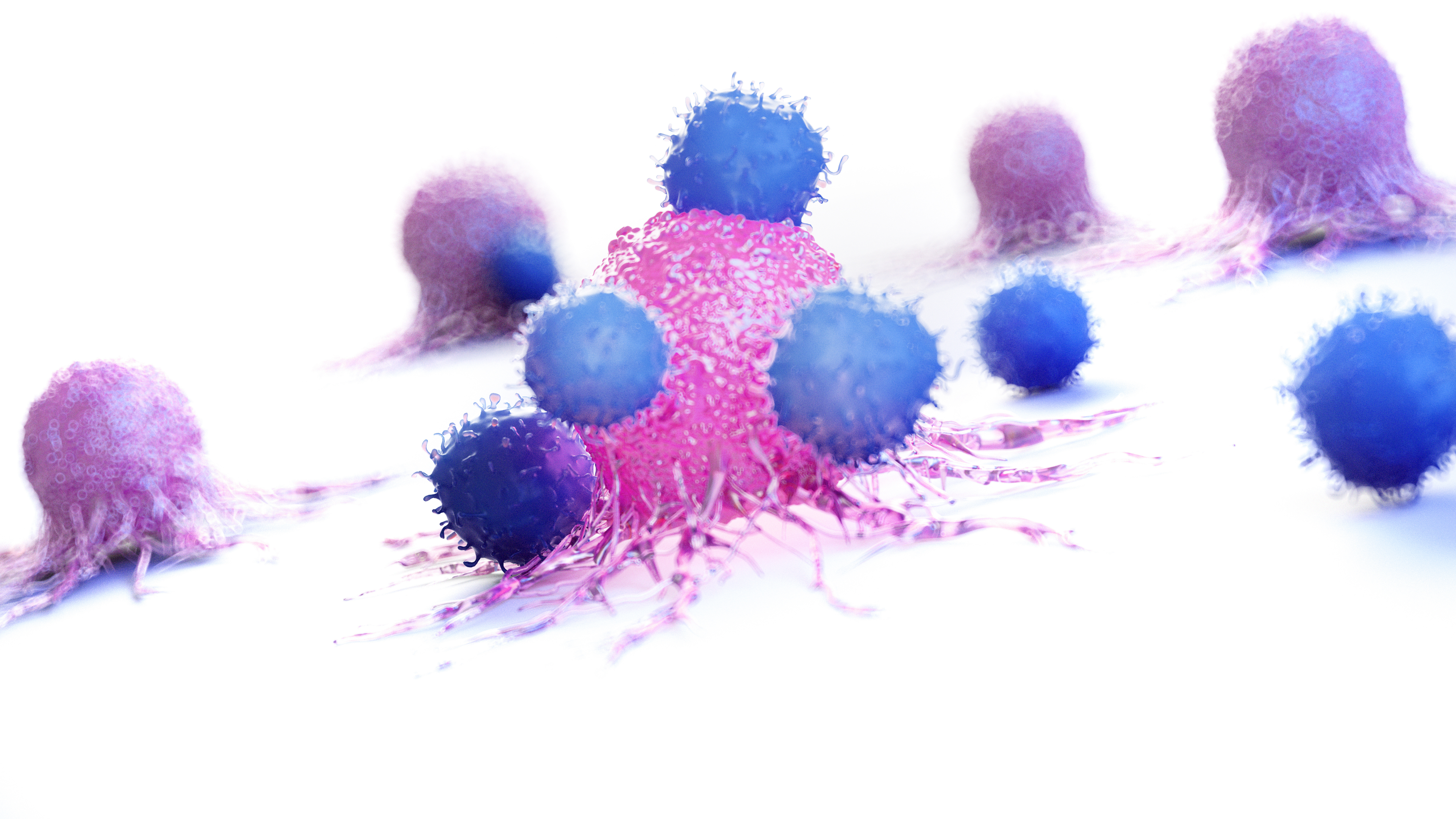
A rare subset of T cells called V–delta 1 gamma-delta (Vd1-gd) T cells could help predict which patients with advanced skin cancer may be responsive to immunotherapy, according to a novel study published by Davies et al in Nature Cancer. Researchers analyzed the clinical trial data of 127 patients with melanoma who were treated with PD-1–targeted immune checkpoint inhibitors. The researchers found that the presence of Vd1-gd T cells—which may be capable of recognizing and killing cancer cells without requiring them to have mutations—was highly predictive of positive responses to immune checkpoint inhibition, particularly in patients whose tumors harbored few mutations. They then used a novel technique to isolate and grow Vd1-gd T cells from human tissues and demonstrated that the cells could be reactivated by immune checkpoint inhibitors currently used in the National Health Service to treat patients with advanced skin cancer. Further, the researchers discovered that the Vd1-gd T cells could be more resistant to suppression from cancer cells compared with more common T cells, representing the potential for therapies using Vd1-gd T cells to work for longer periods of time. In a companion press release on the findings from King’s College London, the study authors concluded: “The … findings may help [physicians] decide which patients are most likely to benefit from current immunotherapies … and highlights the importance of understanding the contributions of lesser-studied immune cell types in efforts to improve the effectiveness of immunotherapies.”